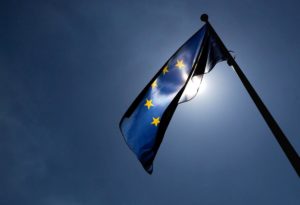
Ukrenergo and the German energy agency DENA will analyze the technical and regulatory problems associated with the integration of fast growing capacities of renewable energy sources and will develop necessary recommendations. According to a press release from Ukrenergo, the main instruments for effective integration are systems for accurate forecasting of generation from renewable energy sources, a developed market for auxiliary services and interconnectors.
Ukrenergo notes that at present the united energy system of Ukraine can accept 4.75 GW of renewable energy capacities without negative consequences, while by the end of 2019 this figure will amount to 3.965 GW.
“A further increase in the share of renewable energy generation without the urgent legislative settlement of the issue of their work in the energy market and their controlled construction pose risks of the system imbalance. And first of all, the problem lies in a lack of responsibility of “green” generation for imbalances, which, in turn, does not stimulate manufacturers to accurate forecasting of production,” the company said.
The project “Transformation of the Energy System to Optimize the Integration of Renewable Energy in Ukraine” is funded by a grant from the German Federal Ministry for Economic Affairs and Energy and will last until March 2020.

In the Office of the President of Ukraine, Advisor to the Head of State Mykhailo Fedorov had a meeting with the European Union assessment mission with the participation of the European Commission’s DG Connect representatives, the presidential press service has reported.
The purpose of the mission is to assess the readiness of Ukraine’s telecommunications sector to integrate with the EU Digital Single Market (DSM).
“The president’s team clearly understands that further acceleration of economic and social development is possible only in the case of digital transformation. We are willing to fulfill all the conditions quickly to become part of the EU initiative to create a single digital market. These are powerful digital and economic prospects for Ukraine,” Fedorov emphasized.
The DSM strategy is now being successfully implemented in Europe. According to European experts, a single digital market can bring EUR 415 billion annually to a united Europe and create hundreds of thousands of jobs.
The strategy is based on the European values of fair and open competition, open and secure Internet that ensures a free flow of information.
Particular attention was paid to data protection, privacy and cybersecurity issues, including the issue of Internet management.
“The bill ‘On Electronic Communications’ is included in the list of priorities for consideration and approval. The deputies from the future Digital Transformation Committee of the Verkhovna Rada of Ukraine are already actively working on it,” the Advisor to the President of Ukraine added.
Today, the DSM is regarded as Europe’s main asset aimed at adapting European society and business environment to new conditions of doing business in the international arena. Europeans want to ensure an effective development of different sectors of the economy that use digital technologies to innovate so that they remain competitive globally.
The representatives of the EU mission emphasized the need to ensure the independence and capability of the regulator in the telecommunications sector.